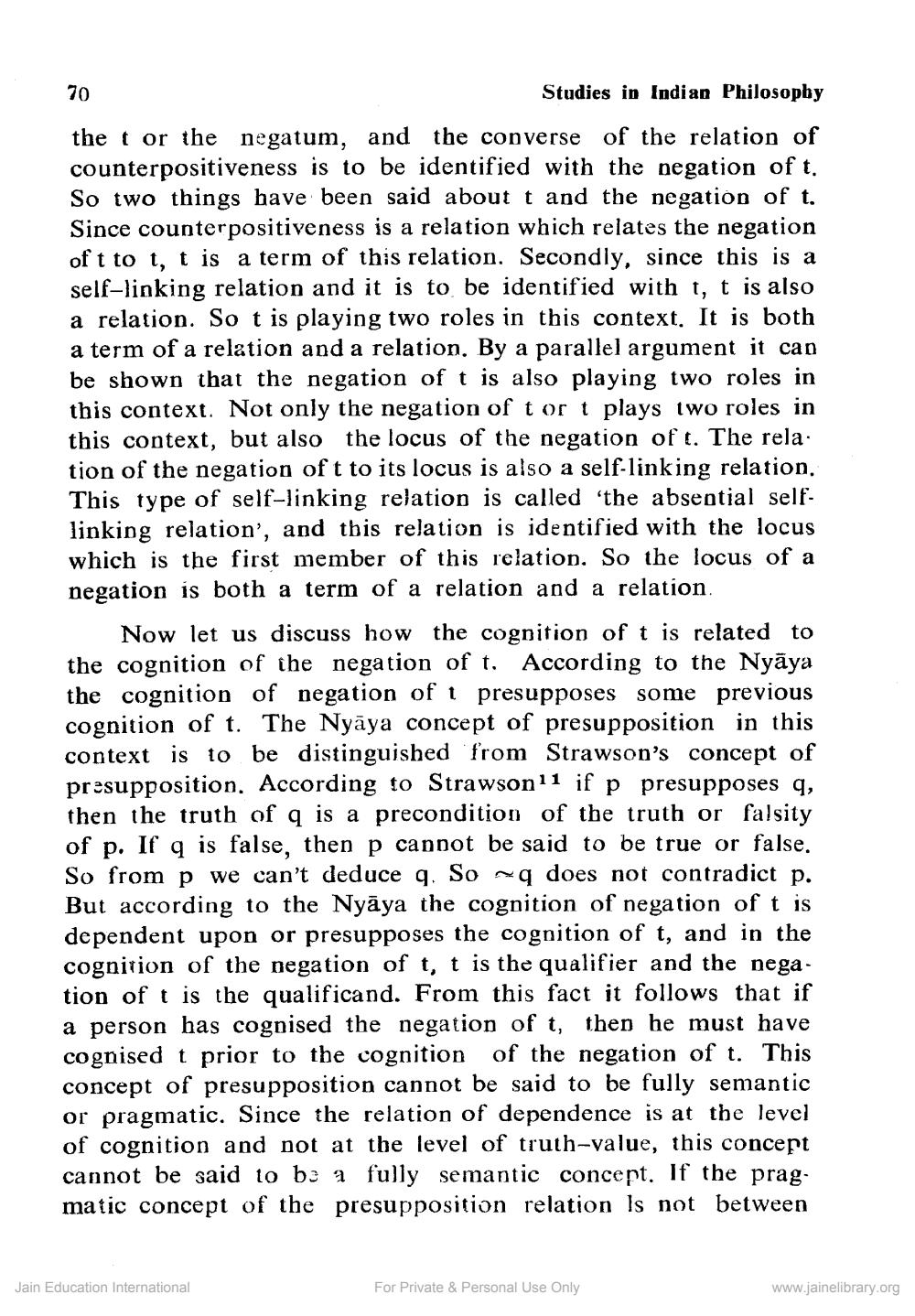________________
70
Studies in Indian Philosophy the t or the negatum, and the converse of the relation of counterpositiveness is to be identified with the negation of t. So two things have been said about t and the negation of t. Since counterpositiveness is a relation which relates the negation of t to t, t is a term of this relation. Secondly, since this is a self-linking relation and it is to be identified with t, t is also a relation. So t is playing two roles in this context. It is both a term of a relation and a relation. By a parallel argument it can be shown that the negation of t is also playing two roles in this context. Not only the negation of t or t plays two roles in this context, but also the locus of the negation of t. The rela: tion of the negation of t to its locus is also a self-linking relation. This type of self-linking relation is called 'the absential selflinking relation', and this relation is identified with the locus which is the first member of this relation. So the locus of a negation is both a term of a relation and a relation
Now let us discuss how the cognition of t is related to the cognition of the negation of t. According to the Nyāya the cognition of negation of i presupposes some previous cognition of t. The Nyāya concept of presupposition in this
text is to be distinguished from Strawson's concept of presupposition. According to Strawson11 if p presupposes q, then the truth of q is a precondition of the truth or falsity of p. If q is false, then p cannot be said to be true or false. So from p we can't deduce q. So -q does not contradict p. But according to the Nyāya the cognition of negation of t is dependent upon or presupposes the cognition of t, and in the cognition of the negation of t, t is the qualifier and the negation of t is the qualificand. From this fact it follows that if a person has cognised the negation of t, then he must have cognised t prior to the cognition of the negation of t. This concept of presupposition cannot be said to be fully semantic or pragmatic. Since the relation of dependence is at the level of cognition and not at the level of truth-value, this concept cannot be said to be a fully semantic concept. If the prag. matic concept of the presupposition relation is not between
Jain Education International
For Private & Personal Use Only
www.jainelibrary.org




